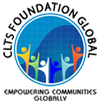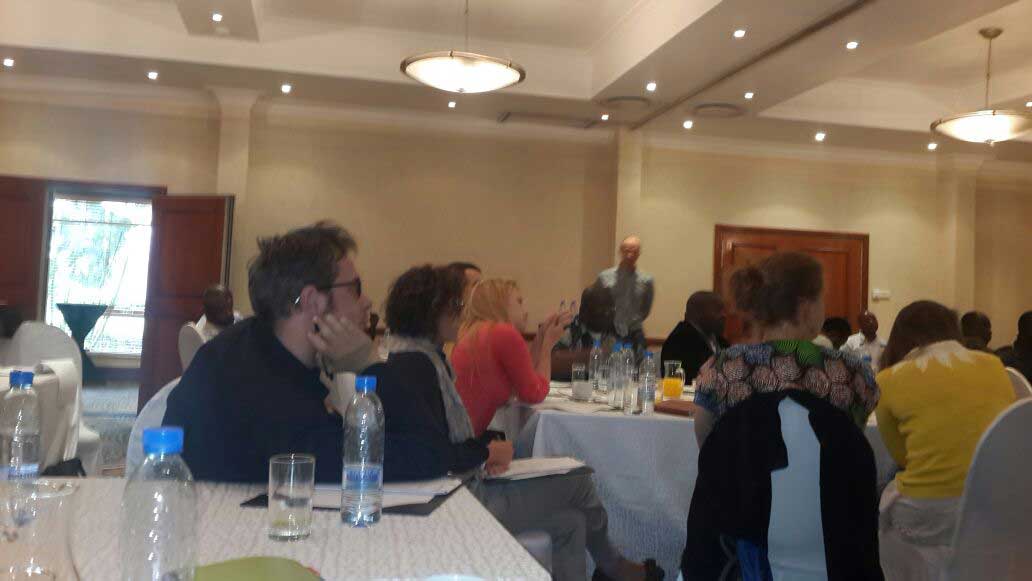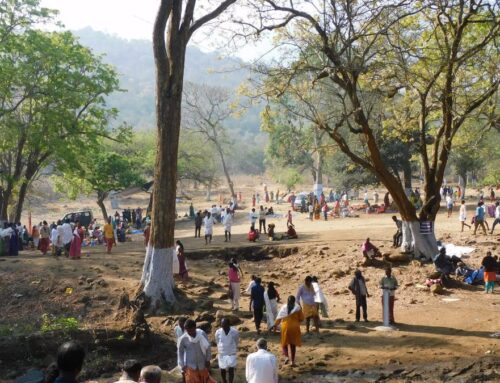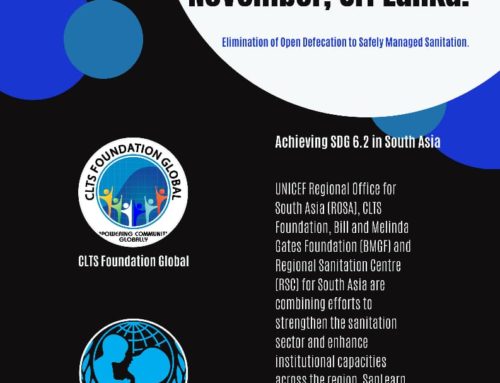
Community-led Total Sanitation (CLTS) approach was introduced in Zambia in 2007 and in November 2009, Macha chiefdom (Choma district) attained Open Defecation Free (ODF) status, making it the first chiefdom in Africa to be so recognised.
The ODF movement in the country has been gaining ground in the past two years. Till now, 16 chiefdoms have been declared ODF and one district (Chiengi) was declared ODF this year. This has been possible due to the involvement of various ministries, provincial governments, city councils, districts councils, traditional chiefs, international NGOs, etc.
Ms Doreen Sakala, a dynamic government officer has been working in the Ministry of Community Development, Mother and Child Health from October, 2013. As Chief Environmental Health Officer working in the Ministry that is responsible for Primary Health Care, she provides technical guidance on environmental health-related policies to the Districts across the country; undertakes regular monitoring and evaluation of environmental health programmes; provides guidance for active and passive surveillance of all communicable diseases in order to ensure effective control measures for epidemics, co-ordinates water and sanitation programs at the Ministry level etc.
On July 20, 2015 the CLTS Foundation Global, Kanyama community, Kanyama Water Trust-pit emptiers, Lusaka City Council, Institute of Development Studies (IDS), UNICEF Zambia, University of Zambia, Ministry of Health, Ministry of Community Development, Mother and Child Health, and University of Galway representing the Consortium, GIZ, WASAZA, Africa Call, Kasisi, EcoZambia, etc, participated in an Urban Sanitation Stakeholder Consultation for developing a sustainable Sanitation Value Chain in Zambia. At the end of the workshop, we had the opportunity to speak to Ms Sakala, who is a strong advocate of community ownership of programmes and community-led initiatives.
Does the Ministry of Community Development, Mother and Child Health have a role to play in the implementation of CLTS programmes?
In 2007, when CLTS was first introduced in Zambia it was the Ministry of Health which was leading CLTS programmes, but now the Ministry of Local Government and Housing is in charge of sanitation. The Ministry of Community Development, Mother and Child Health is also playing a key role in the ODF movement in Zambia. There is a component of environment health technologies in CLTS programmes where we work with chiefs and other traditional leaders through the Environmental Health Technologists under the Ministry of Community Development Mother and Child Health.

How was the workshop? What are your views on community ownership of programmes in the context of Kanyama?
The workshop was wonderful and it was encouraging to see enthused participation from the community members from the highly-populated Kanyama compound, which experiences frequent cholera and Diarrhoeal diseases outbreaks.
I think the methodology used in CLTS programmes in rural areas can also be applied in the urban context. I strongly believe that top-down solutions or remedies do not work. At first the community has to realise that there is a serious problem and that they have to take ownership and be primarily responsible for their well-being. I feel that for any intervention to be successful and sustainable, the community must be involved.
What has been the response from the community so far?
The response from the community has been encouraging and I have seen the desire for change, the desire to lead a better life in them. What we can do from our part is to give them a kick-start by training and equipping them with the required tools. We also need to collaborate with other ministries and the local bodies in order to scale up and make a larger impact.
What are the main challenges at present in implementation of urban sanitation programmes?
There are a number of challenges, but the primary ones are:
• Inadequate financial allocation to water and sanitation programmes
• Insufficient data on water and sanitation programs being undertaken by partners to monitor progress made in the sector
• Low staffing levels in the sector especially the lower structures under the Ministry of Local Government and Housing
• Inadequate coordination among key stakeholders in the WASH sector
• Lack of effective community participation in developing solutions to WASH problems
More photos from the workshop
Date: August 5, 2015





Leave A Comment